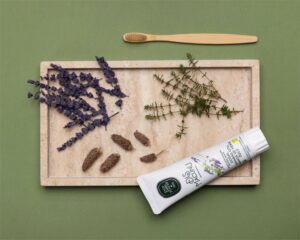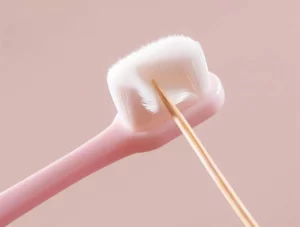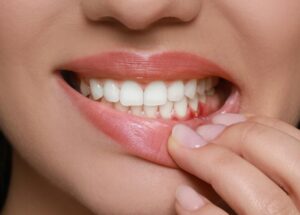Good dental health as kids is key to their health as they grow. Baby teeth care is essential to help children build strong brushing and flossing habits that prevent cavities and gum diseases. This guide shares expert advice and proven tips so parents can feel confident their little ones are getting proper care. With good baby teeth care, you set up your child for a lifetime of healthy smiles and strong teeth.
The Importance of Starting Early: A Lifelong Investment
The journey to excellent oral health begins long before a child can hold a toothbrush. Good habits, supported by parental guidance and regular professional care, lay the groundwork for strong teeth and gums throughout their lives. Neglecting early dental care can lead to preventable issues that affect not only oral health but also speech development, nutrition, and overall comfort.
When to Initiate Dental Care and First Dental Visits
Dental care for children should commence as soon as their first tooth makes an appearance, typically around six months of age. Even before the first tooth erupts, gently wiping your baby’s gums with a clean, damp cloth after feedings can help establish a clean oral environment. The American Dental Association (ADA) and other health organizations recommend scheduling your child’s first dental visit by their first birthday, or within six months of their first tooth emerging. These early appointments are vital for:
- Early detection and intervention for potential issues.
- Acclimating your child to the dental office, reducing future anxiety.
- Receiving personalized advice on proper care techniques, diet, and fluoride needs.
Establishing Daily Oral Hygiene Rituals
Regular maintenance is key to kids’ dental health. Brushing and flossing remove plaque and food left behind that can cause decay, so children should keep up these daily habits. Parents need to watch and help, mostly in the first years, to make sure of good cleaning and also teach right ways.
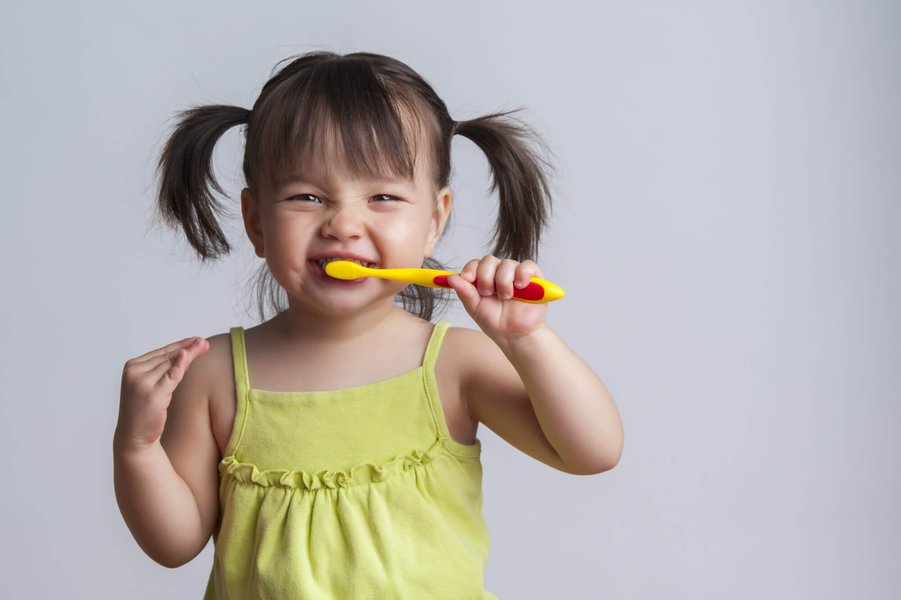
A young child learning to brush their teeth, highlighting the importance of early habit formation.
When to Initiate Dental Care and First Dental Visits
Children should brush their teeth twice a day, ideally for two minutes each time. The amount of fluoride toothpaste to use varies by age:
- For children under 3 years old: Use a “smear” of fluoride toothpaste, roughly the size of a grain of rice.
- For children 3 years and older: Use a “pea-sized” amount of fluoride toothpaste.
It’s important to supervise brushing until your child is around six years old, ensuring they adequately clean all surfaces of their teeth and learn to spit out the toothpaste rather than swallowing it. Swallowing too much fluoride toothpaste can lead to dental fluorosis, characterized by white spots on the teeth.
The Role of Flossing
Once your child’s teeth begin to touch, usually around ages two to six, daily flossing becomes a critical component of their oral hygiene routine. Flossing removes plaque and food debris from between teeth and under the gumline, areas that toothbrushes cannot reach. This significantly reduces the risk of interdental cavities and gum inflammation.
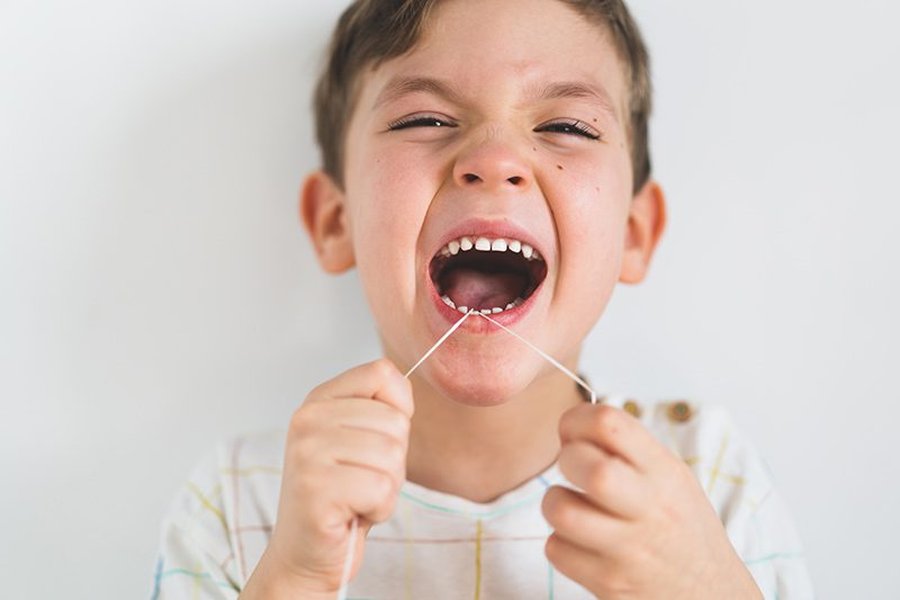
A young child learning to brush their teeth, highlighting the importance of early habit formation.
Making Dental Care Fun and Engaging
Motivating children to embrace dental care can be a challenge, but incorporating elements of fun and engagement can transform a chore into a positive experience. Making the routine enjoyable helps instill lifelong healthy habits.
- Personalized Tools: Allow your child to choose their own toothbrush featuring favorite colors, characters, or even an electric toothbrush designed for kids.
- Interactive Aids: Utilize brushing songs, two-minute timers, or engaging stories about “brushing heroes” to keep them entertained for the full duration.
- Reward Systems: Implement simple reward charts or sticker systems to acknowledge consistent brushing and flossing efforts.
The Power of Fluoride and Professional Treatments
Fluoride is a naturally occurring mineral that plays a vital role in preventing tooth decay by strengthening tooth enamel and making teeth more resistant to acid attacks from plaque bacteria and sugars. Beyond fluoride toothpaste, professional applications can provide additional protection.
- Fluoride Treatments: Dentists may recommend fluoride varnish, a highly concentrated fluoride solution applied to the tooth surface, to further strengthen enamel and prevent cavities.
- Dental Sealants: For children typically around age six, dental sealants can be applied to the chewing surfaces of the back teeth (molars and premolars). These thin, plastic coatings fill in the pits and grooves where food particles and bacteria often get trapped, acting as a protective barrier against decay.
Nutrition and Hydration: Allies for Dental Health
What a child eats and drinks directly impacts their oral health. A balanced diet and adequate hydration are crucial for strong teeth and gums, complementing daily brushing and flossing efforts.
- Limit Sugary Items: Reduce the consumption of sugary snacks, candies, and sweetened drinks, as sugar is a primary fuel source for bacteria that produce decay-causing acids.
- Prioritize Healthy Choices: Encourage nutrient-rich foods such as fruits, vegetables, whole grains, dairy products (like milk and cheese), and lean proteins. These foods provide essential vitamins and minerals for tooth development and overall health.
- Embrace Water: Encourage your child to drink plenty of water, especially fluoridated tap water, throughout the day. Water helps rinse away food particles and sugars, neutralizing acids and keeping the mouth hydrated.
The Role Model Effect: Leading by Example
Children are keen observers, often mirroring the behaviors of their parents and caregivers. Demonstrating good oral hygiene habits yourself is one of the most powerful ways to encourage your child to adopt similar practices. Let them see you brush and floss regularly, and talk positively about dental visits. A family-wide commitment to dental health creates an environment where healthy habits are naturally embraced.
Understanding the Timeline of Pediatric Dental Care
The table below provides a concise overview of key dental care milestones and recommendations for children, from infancy through early childhood. This timeline helps parents understand when to introduce certain habits and treatments.
| Age Group | Key Recommendations | Toothpaste Amount | Parental Involvement |
|---|---|---|---|
| Birth to First Tooth | Gently wipe gums with a damp cloth after feedings. | None | Full supervision and active cleaning. |
| First Tooth (approx. 6 months) to 3 Years | Begin brushing twice daily. First dental visit by 1st birthday. Introduce flossing when teeth touch. | Smear (rice-sized) fluoride toothpaste. | Full supervision; assist with brushing and flossing. |
| 3 to 6 Years | Continue brushing twice daily. Regular dental check-ups (every 6 months). Introduce dental sealants if recommended. | Pea-sized amount of fluoride toothpaste. | Close supervision; encourage spitting toothpaste. |
| 6 Years and Older | Continue regular brushing and flossing. Promote independence with supervision. Consider fluoride treatments. | Pea-sized amount of fluoride toothpaste. | Supervise as needed; reinforce good habits. |
Explore More: Understanding Dental Hygiene for Kids
Understanding the fundamental reasons behind dental care can greatly aid in teaching children its importance. The following video from SciShow Kids provides a fantastic, child-friendly explanation of why we brush our teeth, making the concept of dental hygiene accessible and engaging for young minds. It’s an excellent resource for parents looking to introduce the topic in a fun and educational way, supplementing the practical advice provided in this guide.
Sources:
- American Academy of Pediatric Dentistry (AAPD) – Baby Teeth and Oral Care
- Mayo Clinic – Caring for Your Baby’s Teeth
- American Dental Association (ADA) – Teeth Cleaning Tips for Kids

